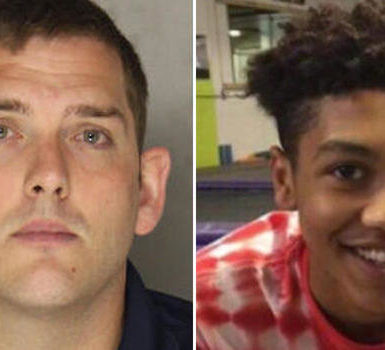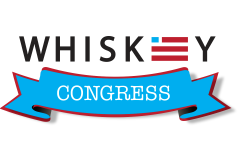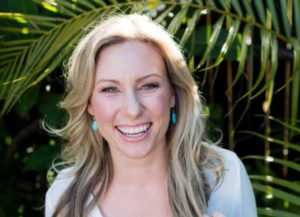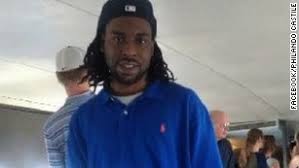
Michael Rosfeld Charged With Antwan Rose Jr.’s Death in Pittsburgh
Antwan Rose Jr. is another name we have to add to the list of young black men shot and killed by police. It has been reported by multiple news outlets today that the officer responsible for the shooting death, Michael Rosfeld, has been formally charged with criminal homicide. Anyone looking at the video objectively can see the young man was unarmed and running away from the officer when he was shot. This article will not so much be talking about the officer’s actions, or the officer’s white privilege, or systemic racism. While all of those are at play here, and to be clear, I firmly agree with this officer being charged, and found guilty of at minimum 3rd degree murder, that’s not what I’m here to discuss today.
What I want to talk about today is the situation and circumstances that ultimately lead to Rose’s death. Think about this, Rose was in a car that allegedly shot at another person, which that person returned fire and hit the car Rose was in. Think about that, he was shot at twice in a single day, with the second time being by a police officer. Situations like that should be reserved for war zones, not boroughs in Pittsburgh. I don’t know why Rose was in that car, based on video, we can infer that he wasn’t the shooter. What I do know is that he shouldn’t be dead, the officer should’ve never pulled the trigger, but the minutes leading up to it, should’ve never occurred either.
To me this isn’t about Rose and his choices and Michael Rosfeld and his decision to shoot instead of chase. This is about the state of the community of which Rose lived. Solving the issue of crime and specifically gun violence in urban areas is complex and there is not one single answer. Some will say we need to crack down on crime even more and bring in more police. On the surface, that makes sense, but when you look at what happens when you bring in more police, it tends to make a bad situation worse. In the short term, crime may (or it may go up and we’ll see why shortly), but the flip side is that the police will start to crack down and enforce the small infractions and prosecutors will seek maximum sentences, and we’ll see more broken homes, more kids without fathers and mothers, and more citizens who will be virtually unemployable because of their criminal records will be littered with arrests and misdemeanors and in some cases felonies. The law and order people are screaming at this point about deterrence, yet the research doesn’t really back that up.
If we drive more police into an area, police are going to do what police do which is make arrests. Crime statistics are not a measure of what crimes civilians are committing, it is a measure of what is being reported to and what actions are being taken by the police. That is not an original thought I came up with, but is derived from Michael Wood Jr. who is a former police officer and police management scholar. In other words more crime is reported in urban areas and police officers make more arrests in urban areas, but how much of that is directly related to the style of policing? For instance, how often do white teenagers in the suburbs walk down the street and get stopped and frisked by police? How often do black teens in urban areas or sometimes in suburbs as well get stopped by police and frisked? The answer is more for black kids, but this is virtually impossible to prove because the stop and frisk isn’t reported and it may not be explained that way in an arrest report if something comes of the search. Some immediately will jump up and say well the black teens are more likely to be up to no good, but what is that based off of? It’s based off police routinely stopping people who look like them and searching for something like drugs to make an arrest. And while data points to these kids being more likely to be criminals we also have data that clearly shows the opioid epidemic is hitting the white suburbs just as bad as the crack epidemic among white teenagers. Opioids are illegal folks, whether its prescriptions stolen from grandma or heroin, and chances are these kids are walking down the street with it or driving it from wherever they buy it from, but because there is no presumption of guilt, no one is stopping them to see what they’re up to. What we know is that drug use among teens is roughly the same across all races, yet arrests rates for drugs for blacks is much higher.
So if adding more police to urban areas isn’t the answer then what is? In my opinion it’s about becoming a community again, but not just in name, but reality. Some communities have already done because they’re tired of the violence by both gangs and police so they take issues into their own hands. No I don’t mean they become vigilantes, but instead if there is a specific place where violence is happening every night, a group of people go stand watch on that corner to make sure nothing happens. If there is a specific house that is known to be some form of a drug house, get 20 people together, physically go to the police station together and in force and demand something be done about it. If police have 20 complaints all at once, whose the snitch? And if it leads to arrests and shutting down said crime house, mission accomplished. But it’s not just about stopping crime, what about walking kids to school, or dropping them off to make sure they get there safe? Maybe because of your work schedule you can’t but maybe another parent can and will.
The community aspect goes further, and not to say these things aren’t already happening in some areas, but they need to become an epidemic in urban settings. Fixing places where younger kids can play, creating spaces for community gardens so people can grow vegetables and spices. These things can be done without a lot of money and with effort from multiple people. Yes there are groups that come in from the outside but typically how responsive are these communities to other people coming from the outside? Some places they are others they aren’t, and for those places where the overall community distrusts someone coming in from the outside, okay fine, take it among yourself to start a garden and recruit others to help. These are renewable resources that can save people money, build a sense of community, and provide a safe outlet for some kids that have an interest in horticulture or culinary arts.
Now the question is how does reducing police and instituting these various community functions help kids like Antwan Rose Jr.? The first one is obvious, less police, less of a chance there’s this type of interaction. Mix in some other aspects to policing like requiring the officers to live in the area, or mandate some sort of consistent volunteer work in the area on a monthly basis and maybe this doesn’t happen. Building a better sense of community possible silos him away from the other people in that car because he’s busy working in the garden, or he’s working on attending some other community function. Maybe the community watch group stems the flow of bad blood that created the beef in the first place, there is no drive by and we’re not having this conversation.
I will say again that the Rosfeld was rightfully charged and should be found guilty of murdering that young man. I will also say that while we can’t control for every situation where police decide to abuse their power, we still need to fight for control of neighborhoods and our communities. We have to push back against the gangs and drugs, we have to push back against over aggressive police and a racist system designed to target and one or another eliminate us. We can’t stand and take it, and we can’t expect someone from outside of our community to come in and save us, because that savior doesn’t exist. Urban neighborhoods were no better or worse under Clinton, G.W. Bush, Obama and now Trump. We have to fight for ourselves, get creative, and rebuild our communities from within.
Steve
Steve is an affordable multifamily housing professional that is also the co-founder of Whiskey Congress. Steve has written for national publications such as The National Marijuana News and other outlets as a guest blogger on topics covering sports, politics, and cannabis. Steve loves whiskey, cigars, and uses powerlifting as an outlet to deal with the fact that no one listens to his brilliant ideas.



